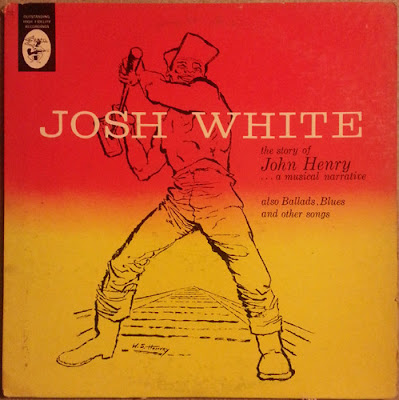Slick, sly, and fiercely intelligent, White began as a Piedmont blues player, but became a sort of pre-Harry Belafonte black sex idol, complete with a leftist social and political agenda, during his so-called cabaret blues period in the late '40s, and when the McCarthy era led to his blacklisting, he rebounded into the folk revival with several carefully assembled albums for Jac Holzman's newly created Elektra label that recast him as a folk balladeer.
This set, originally released as an LP in 1957, was the first of those albums for Elektra. Few performers could make the folk-blues straddle the line between being rustic on the one hand and artfully urbane on the other like White was able to do, and while to some extent it was a stage act, there is no doubting White's ultimate devotion to his material.
The key track here is the first one, an epic 23-plus-minute version of "John Henry" that was the center of White's live performances during his folk period and was somewhat of a signature song for him. Although some doubted White's authenticity as a folk-blues performer (they really shouldn't have), the fact remains that White was an excellent acoustic guitar player and a subtle and versatile singer who carefully selected his material, well aware of how it made him appear.
Listeners should definitely check out some of White's early Piedmont-styled 78s from the '20s, though, like "Blood Red River" and "Silicosis Is Killin' Me," to really hear this intelligent performer at his best.
Tracklist:
1. The Story Of John Henry... a musical narrative 23:33
Tracklist:
1. The Story Of John Henry... a musical narrative 23:33
2. Black Girl 2:58
3. Free And Equal Blues 3:49
4. Live The Life 2:22
5. Sam Hall 2:58
6. Where Were You, Baby? 3:38
7. Delia's Gone 3:49
8. Run, Mona, Run 1:37
(320 kbps, cover art included)

